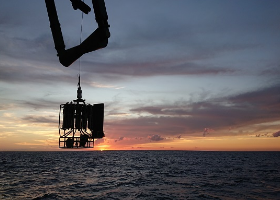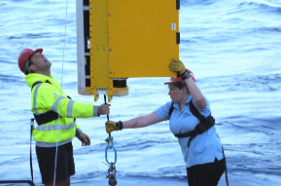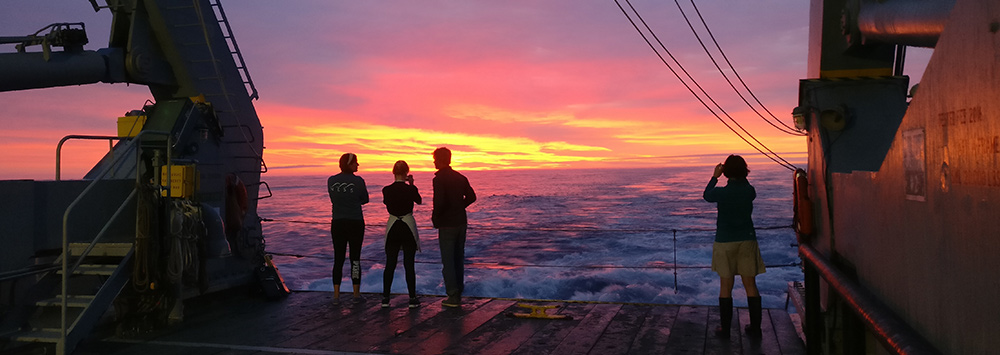Research highlights
Our research includes understanding ocean-atmosphere interactions related to heat and carbon storage, sea level change, the effect of multiple stressors on marine ecosystems and developing techniques to detect pollutants. Our research delivers the new knowledge essential for national and international climate change impact assessments and policy initiatives, including those by Defra and the IPCC.
We have strong links to other areas of the University that have active research programs in sustainable energy and climate change. These include the Stephenson Institute for Renewable Energy and the University’s new research theme on Future Energy.
Some of our recent projects under the Oceans and Climate theme:
How the Gulf Stream affects climate change and carbon cycle

 CarTRidge: Enhanced carbon export driven by internal tides over the mid-Atlantic ridge
CarTRidge: Enhanced carbon export driven by internal tides over the mid-Atlantic ridge
Most plankton growth in the ocean occurs in the warm surface waters, where there is plenty of sunlight. This warm layer is separated from deeper, colder, nutrient-rich waters by the thermocline. The team previously found that underwater waves travelling along the thermocline increased supplies of nutrients and light to the plankton at the sea surface. This project will investigate how turbulence generated over the ridge leads to increased export of carbon from the sea surface to the ocean depths.
An expert's view
Professor Ric Williams explains how universities can act as powerhouses for change, by finding solutions to some of the issues causing climate change.
News
- University of Liverpool to mark #ShowYourStripes day
- Twilight zone at risk from climate change
- New data reveals British sea level records stretching back 200 years
- University joins national climate network
- Deep-sea project helps chart future course for the Atlantic Ocean
- New research helps detect change in Arctic Ecosystems
- New insight into how future fish stocks are affected by phytoplankton and iron uptake
- Why clouds are the missing piece in the climate change puzzle
- Arctic climate change – it's recent carbon emissions we should fear, not ancient methane 'time bombs'
- INTERVIEW: How Oceans are Moderators of our Changing Climate
- New report reveals impact of climate change on UK coasts and seas
- Shedding light on the dark cycle of iron in the oceans
- How Antarctic krill fertilise the oceans and even store carbon – all with their poo
- Liverpool scientist co-authors IPCC climate change and oceans report
- Postcard: Studying iron cycling in the Southern Ocean
- Celebrating 100 years of oceanography
- Ocean scientists support RRS David Attenborough celebrations
